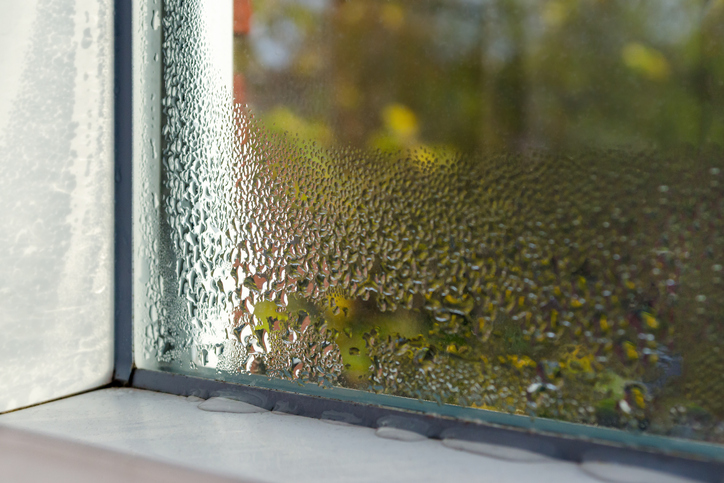Humidity can keep your skin hydrated, ease sinus aggravation, and may even help keep you healthy during flu season. However, too much of a good thing can be bad. High humidity levels indoors can lead to mold and mildew growth, cause paint and wallpaper to peel, weaken or damage your home's infrastructure, and is overall uncomfortable to live with. That's why it's important to be armed with the following tips to help reduce the humidity in your home.
Want to know more about your indoor air quality? Contact Spoor's Heating & Air Conditioning today to schedule an appointment for all of your HVAC needs!

Limit Indoor Moisture
Everyday activities such as showering, cooking, washing, and bathing are huge sources of indoor humidity. While you shouldn't stop doing any of these, there is potential for you to limit how much humidity is transferred into your home. Because water with lower temperatures dissipates easier than higher temperatures, opting for cold water when possible, such as when cleaning the dishes, can be helpful. Additionally, reducing the number of baths per week in addition to taking shorter showers can be helpful. Moving indoor plants outside during the wet seasons can also help balance your home's humidity levels. Also, ensure your water heater is free of leaks and is performing properly.
Increase Ventilation
In addition to limiting the sources of humidity, it can be helpful to increase home ventilation to handle the humidity that can't be reduced, such as from showering or cooking. Many homes come with ventilation fans already in bathrooms to help steam dissipate, but even using a floor fan after a shower can help. It's also important to use the ventilation system built into your stove's cooking range, which can pull steam from the kitchen and deposit it outside. Strategically placed ceiling fans and floor fans can circulate air throughout your home, helping humidity to dry naturally.
Check Your Filter
While fans can help move the air around and keep it dry, if your HVAC filter is clogged, the airflow in your home will be severely restricted. Even if your filter appears to be clean, if you're noticing increased humidity, the MERV rating of the filter may not be correct for the HVAC system. If you're not sure whether you're using a correctly rated filter, consult with a professional HVAC technician during HVAC maintenance to determine the right ones to use for your system and budget. No matter what, it's important to regularly check and change your filter to keep airflow efficient.
Invest In A Dehumidifier
If you haven't seen much impact from your attempts at reducing indoor humidity, a dehumidifier may be your best option. If you decide to invest in a dehumidifier, pay close attention to areas throughout the home that are most responsible for humidity and account for solutions that are already in place. Purchase a dehumidifier that can handle these spaces, paying special regard to the area rating of the unit. If you want a more natural option, rock salt or charcoal briquettes can be budget-friendly while still pulling and trapping moisture from the air.
